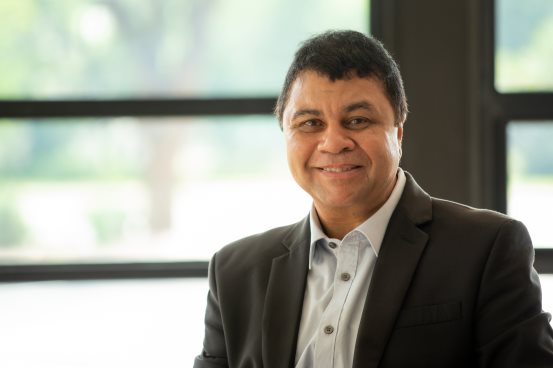Prof Motlalepula Matsabisa, Professor in the Department of Pharmacology at the University of the Free State (UFS), in South Africa, is leading Africa’s fight against the COVID-19 pandemic with his appointment as chairperson of the World Health Organisation’s (WHO) Regional Expert Advisory Committee on Traditional Medicines for COVID-19.
Prof Matsabisa has been chosen over 25 other experts from 27 African countries to head this expert committee tasked with setting up research and clinical trials for COVID-19 and beyond. The committee is also supported by the African Union (AU), the Centers for Disease Control and Prevention (CDC – Africa), and the European and Developing Countries Clinical Trials Partnership (EDCTP).
This committee was established by the WHO and the Africa CDC on 22 July 2020 with the aim of providing independent scientific advice and support to countries on the safety, efficacy, and quality of traditional medicine therapies. It is also an effort to enhance research and development of traditional medicines for COVID-19 in Africa.

Professor Francis Petersen
Professor Francis Petersen, Rector and Vice-Chancellor of the University comments: “The University of the Free State is honoured that one of its own academics has been chosen to by the WHO to lead the prestigious advisory group assisting Africa in managing the Covid-19 pandemic by combining both Western and African medical responses to the crises. It is a huge responsibility, but we have every confidence that Professor Matasibisa will succeed in his brief.”
Prof Matsabisa comments: “This is a huge continental and global responsibility being laid on my shoulders. I have to keep the committee together and ensure that it delivers on its set mandate and terms of reference. I need to ensure that the committee helps the continent and region to get the scientific and legislative aspects on traditional medicine development on track.”
“I have taken this position and responsibility, knowing quite well what it entails. I want to do this for the continent and for the sake of good science of all traditional healers and consumers of traditional medicines on the continent and beyond,” says Prof Matsabisa.
He adds: “The pandemic requires all efforts from different aspects of health interventions. There is possibly not one single intervention to stop the pandemic of COVID-19 so we look at non-pharmaceutical and pharmaceutical interventions including the development of herb and traditional medicines based pharmaceuticals for the COVID-19
This is the core of my research to find solutions based on indigenous knowledge and products. Traditional medicines can play a role in all the phases of the COVID-19 disease. The phases include the acute phase I, Phase II and Phase III or better known as long COVID or post covid syndrome. Traditional medicines products can work as antivirals, as antioxidants, as viral entry inhibitors and as immune modulators.”
According to Prof Matsabisa, his appointment will run as long as COVID-19 is part of our daily lives and even beyond. It entails supporting member states to implement the WHO master plan for clinical trial protocols in order to generate credible data for COVID-19 results, based on traditional medicines. The committee will also coordinate support to member states in the African region to collaborate on clinical trials of traditional medicine-based therapies – elevating standards by pooling expertise in multicentre studies, as well as complying with GCP and good participatory practice guidelines for trials of emerging and re-emerging pathogens.
“The committee will also advise on strengthening the capacity of national medicine regulatory authorities to accelerate the issuance of marketing authorisations for traditional medicine products that have been well researched for safety, efficacy, and quality, as well as to expedite the approval of clinical trials on traditional medicines. This will help to meet the national registration criteria and the WHO norms and standards of quality, safety, and efficacy for the management of COVID-19 and others.”
“It will also provide independent scientific advice to the WHO and other partners regarding policies, strategies, and plans for integrating traditional medicines into COVID-19 responses and health systems,” explains Prof Matsabisa.
The committee has adopted the Data Monitoring Safety Board(DSMB) charter, has approved phase III clinical trial protocols, has approved a document on the collection of ethnomedical data for preclinical and clinical evaluation of herbal medicines for COVID-19 and has developed and adopted a roadmap on the activities to be undertaken by the committee. The committee has delivered on a numbers of deliverables as set out their terms of reference and these include:
The following 13 countries are conducting preclinical safety and efficacy research on traditional medicines: Benin, Botswana, Cameroon, Congo (Republic), Democratic Republic of Congo, Gabon, Ghana, Kenya, Madagascar, Nigeria, Uganda, South Africa and Zimbabwe.





























